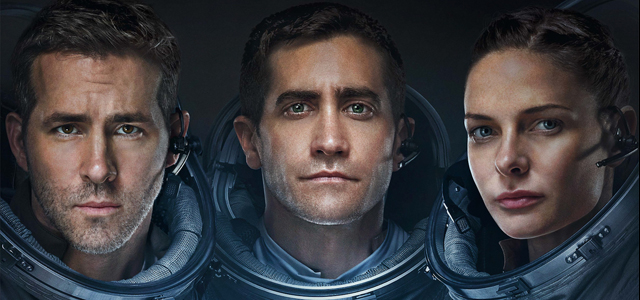Review: Life
(M) Ryan Reynolds, Rebecca Ferguson, Jake Gyllenhaal
Sampling can be defined as the act of taking something from another source and reusing it as something new. A practice that is utilised in all kinds of artistic industries (such as film) with varying degrees of success. Life proves to be a less than successful example of sampling of Alien, Gravity and Frankenstein.
Life is located in the International Space Station, which is the world’s attempt to bring nations together to increase diplomacy and education through scientific experiments. The station contains a crew of six who serve in different roles, but all knowing that their purpose is for the benefit of the world’s population. Commander Katerina Golovkina (Olga Dihovichnaya) leads the crew which has the opportunity to study samples from Mars. One sample is soon announced to be the first life form discovered outside Earth. Hugh Derry (Ariyon Bakare) is one of earth’s leading biologists and he is enthusiastic about learning all he can about the life form. With all of the eyes of the world watching, the crew begins to see the creature grow into a a new type of intelligence. Although there are potential implications presented by this discovery, the scientists keep performing tests until a minor accident occurs… and the lives of the crew — and life on earth — is threatened.
If this sounds familiar, the story and effects come straight from the Ridley Scott (Alien, The Martian) playbook. Director Daniel Espinosa (Safe House) has delivered a visually stunning space horror that sits in the same pocket of the originators of this space-aged genre. Even with these styling similarities, there is potential to differentiate this space odyssey with the amazing cast within the space station. The problem is that good acting talent can be limited by the script provided for them and this one is a bit under cooked, pedestrian and exceptionally predictable (outside of the conclusion). This all could have been improved with effective camera work and on-screen pacing, but extended dramatic pauses among the action become a detriment to the overall experience.
Even with the lack of originality in concept, Espinosa proves he does have a good cinematic eye and the ability to draw strong performances from his acting talent, despite the script’s weaknesses. Jake Gyllenhaal (Nocturnal Animals) and Rebecca Ferguson (Mission Impossible: Rogue Nation) provide the strongest performances and they are complemented by camera usage that injects the necessary discombobulation, not unlike the experience of Gravity.













